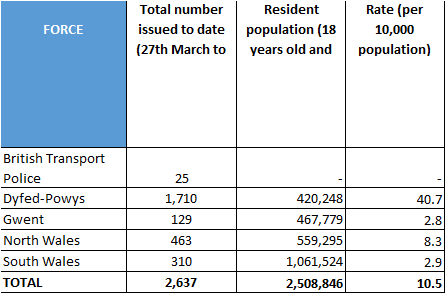LEGAL
The government’s new “Rule of Six” has dominated the COVID19 agenda over this week. Announced by the Prime Minister on Wednesday last week to come into force on Monday 14 September, the actual text of the new regulations was published only minutes before midnight on Sunday.
This is even tighter than the introduction of previous regulation changes – and yet again, it has taken place without parliamentary debate or scrutiny.
Since Monday, social gatherings of more than six people (apart from in a wide range of exceptions) are illegal, with people facing fines of up to £3,200 if they do not abide by the measure in indoor and outdoor settings.
The regulations are not just government guidance this time but created by secondary legislation powers – and are again more complicated than before. Even Home Secretary Priti Patel seemed to have lost track of them when on BBC Radio4 Today she was asked if a family of four stopping and chatting with another family of four on the way to the park, she suggested this was “mingling” which is now banned; it is not. Barrister Adam Wagner, who has been trying to understand the ever-changing regulation, has tried to explain what constitutes ‘mingling’, a central theme in the new rules.
The tougher coronavirus rules also include “Covid Secure Marshals” to help enforce them. Boris Johnson encouraged councils to recruit them, use volunteers or existing council staff, but few seemed to have established the roles, The Guardian noted – let alone understand what the Johnson meant with it and where funding would come from.
Importantly, these marshals will have no enforcement powers, which has managed to annoy the Metropolitan Police Federation, its chairman saying it won’t make any difference if you don’t have the ability to enforce.
The Wikipedia article by Michael Maggs on the English Rule of Six regulations includes full details of all the exemptions. It includes a useful table which, under types of gathering makes a useful distinction between ‘Elite sportspeople and coaches’ and ‘Organised non-elite sports’ – which one may think is a joke, but the elite-rule is in the actual law.
An important new report from Parliament’s Public Administration and Constitutional Affairs Committee says the government has not always justified use of emergency powers and is not using the Civil Contingency Act. The report also highlights inaccurate guidance on COVID19 regulation.
POLICING
On Monday morning, Policing Minister Kit Malthouse told Radio 4 neighbours should snitch on each other to police if they suspect a gathering of six. The Metropolitan Police has said it will patrol public spaces across London to enforce the tighter new restrictions.
Police continue to issue draconian £10,000 fines to organisers of parties, including to a teenager in the University of Nottingham campus area of Lenton on 11 September and the organiser of a party attended by 45 people in a marquee in Fylde in Lancashire. A series of gatherings in Manchester, including a wedding and a 60th birthday party, also led to officers issuing smaller, individual fixed penalty notices.
Serial anti-lockdown protester Piers Corbyn has again been charged in relation to protest in Sheffield.
Two members of the Netpol Lawyers Group, Lochlinn Parker of ITN Solicitors and barrister Owen Greenhall of Garden Court Chambers, have summarised the impact of current coronavirus regulations on your right to protest.
The Attorney General has confirmed that a huge number of people have not paid around half of the fixed penalty notices issued to date.



